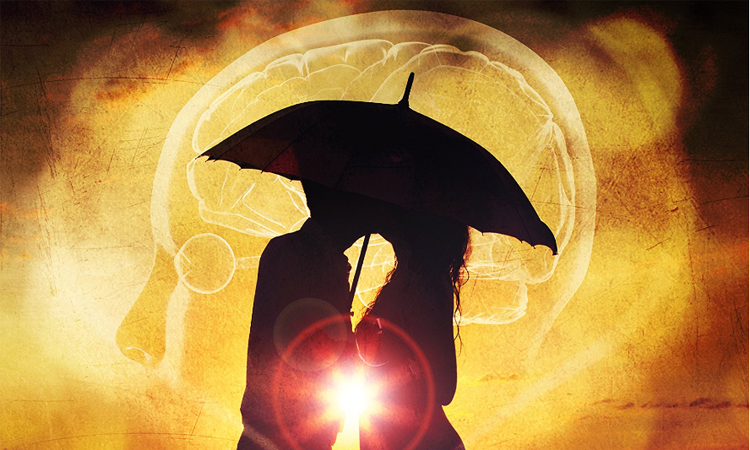Excerpt from Fred Nour’s new book, True Love
Whether you’re single or in a relationship, many of us have the same questions: how can I find true love? Why do I act so crazy when I fall in love? How can I develop the kind of intimacy that lasts? When it comes to love, there’s a ton of conflicting advice and it can be confusing to sort through it.
The media, perhaps the biggest culprit of all, portrays true love as dramatic and all-consuming. Think of the two most well-known love stories of all time: Romeo and Juliet and West Side Story. Star-crossed lovers with never-ending obstacles in their way. As the hopeless romantics that we are, we’re rooting for them to succeed. But let’s be honest, we thrive off the drama and excitement. The sad truth is that on a subconscious level, many of us think that when it’s real love like Tony and Maria, or Romeo and Juliet, it’s not supposed to be easy. However, true love, is in fact much different than the love we see in movies, books and magazines.
While it’s hard to define something as complex as love, it’s easier to say what love is not. Dr Nour does precisely that in his book, True Love: How To Use Science To Understand Love. Fascinating and easy to read, Nour does an incredible job separating facts from myths. Covering everything from the neuroscience of falling in love to how to succeed in finding true love, this book is an excellent resource no matter what your relationship status.
Here, from the book, are five scientifically proven misconceptions about love:
- Romantic Love Misconception
Many people wrongly think that if we don’t feel the falling-in-love feeling forever, then we picked the wrong prince or princess, someone who failed to deliver the dream. Romantic love is the state of our neurotransmitters’ illusions and delusions. We can enjoy this phase while it lasts but must know that one day it will end. We shouldn’t waste years waiting for romantic love to return. It will never come back. We should instead be prepared to move forward with the next phase of love, falling out of love and then enjoying the wonderful feeling of True Love.
- Falling Out-of-Love Misconception
Another common misconception is the belief that falling out of love is the end of love, that love ends when the joys and illusions of falling in love disappear. When we fall out of love, it’s true that our brain ran out of its extra monoamines stores needed for the romantic love phase, and this loss is permanent. There’s no need to feel sad about it, though. There is no need to break up the relationship, either. We just have to work on the next phase of our love, True Love.
- “Childhood Fairy Tales” Love Misconception
When we were children, we were fed multiple fantasy love stories, and of course, being children, we enjoyed them. As children, we lived in dreams and we tended to believe these fantasies and no harm came while we were children. The problem for most is that those stories are pleasant, and like most things that make us feel good, we’re reluctant to let go of the pleasure they bring, even when those older and wiser tell us they’re not true, or even when we grow up and have failed at love before, hence should know that “happily ever after” isn’t real.
Believing that fairy tale love will happen to us is detrimental, in my opinion, even at a subconscious level. No matter how smart or how rational we might otherwise be, we could spend an entire lifetime waiting for a fantasy to become reality, influenced by those childhood fairy tales to refuse the reality of life and demand the fantasy. Fairy tales make it hard for us to find our fantasia, or to accept that the falling-in-love phase of love isn’t permanent.
- “They Lived Happily Ever After” Misconception
Many people believe that love should cause a continuous unremitting sense of ecstasy and elation and that this feeling should never, ever decrease or cease. Love isn’t a continuous sense of happiness and joy, though. True love does have an element of happiness in both the monoamines-based phase and the nonapeptide-based phase, but like all forms of happiness, it can’t be maintained continuously, unabated.
Not realizing or accepting that the joy of love has to fluctuate, we continuously try new things to bring that joy back. Many read all types of self-help books that proclaim, “Bring back the magic!” Some people actually end their current relationship and start all over again. Even so, the next time, or more commonly, the next few times, aren’t any different.
- The “Love Is An Addiction” Misconception
As a physician, I must say no, love isn’t an addiction. As mentioned before, compulsion is the urge to do something we can’t easily resist. An obsession is defined as the urge to think about something we can’t resist. These aren’t addictions, since acute withdrawal from an obsession or compulsion doesn’t threaten our life, and an overdose of either doesn’t threaten our life.
I have never seen a case of a patient who was admitted to the hospital for love withdrawal. I never saw a patient who went to the emergency room for a love overdose. Some are seen for depression, and some attempt suicide over a failed love, but this is seen with all sudden losses, such as the loss of a child or a job.
Reprinted from True Love: How To Use Science To Understand Love by Dr Fred Nour (Niguel Publishing)

Rose Caiola
Inspired. Rewired.


